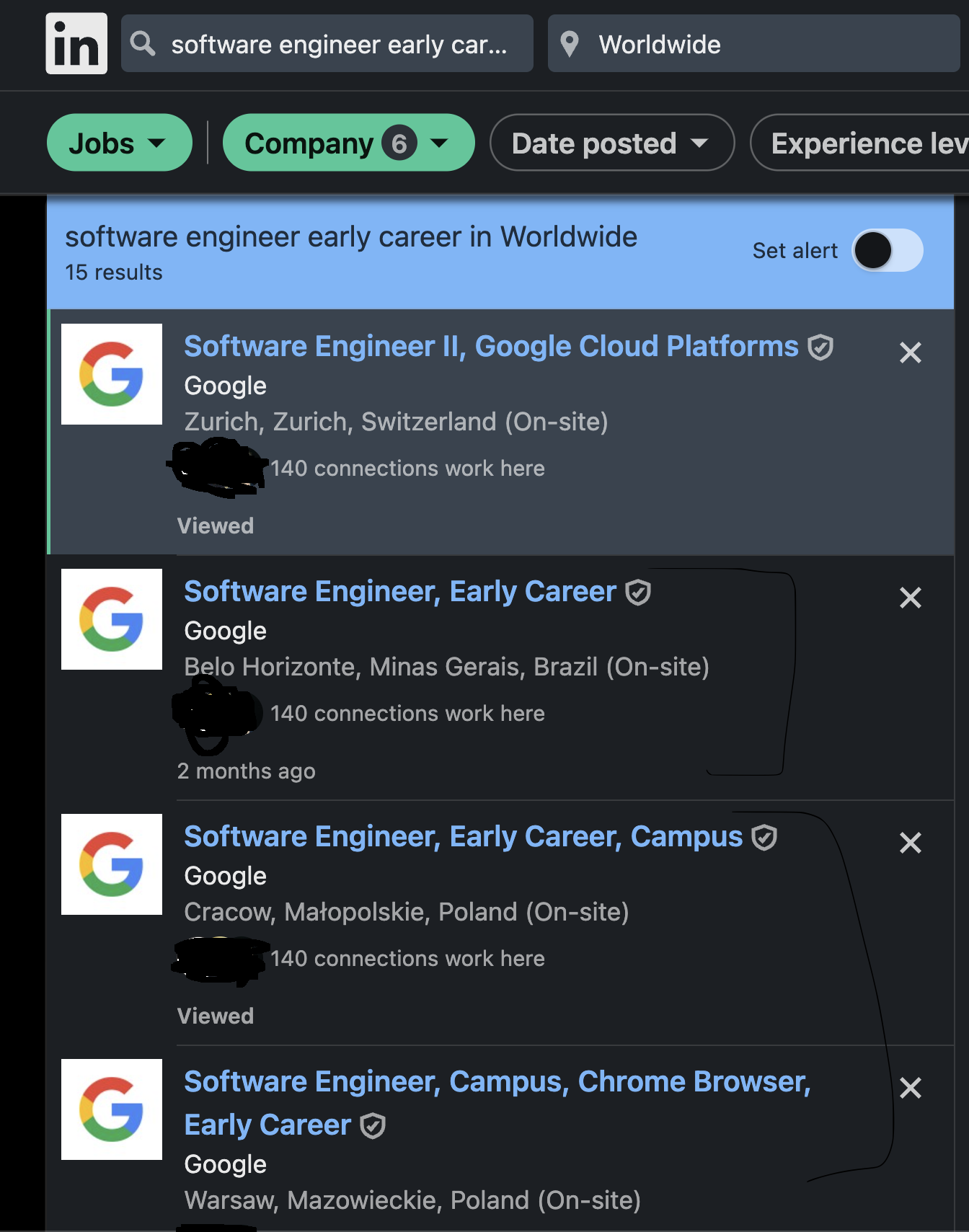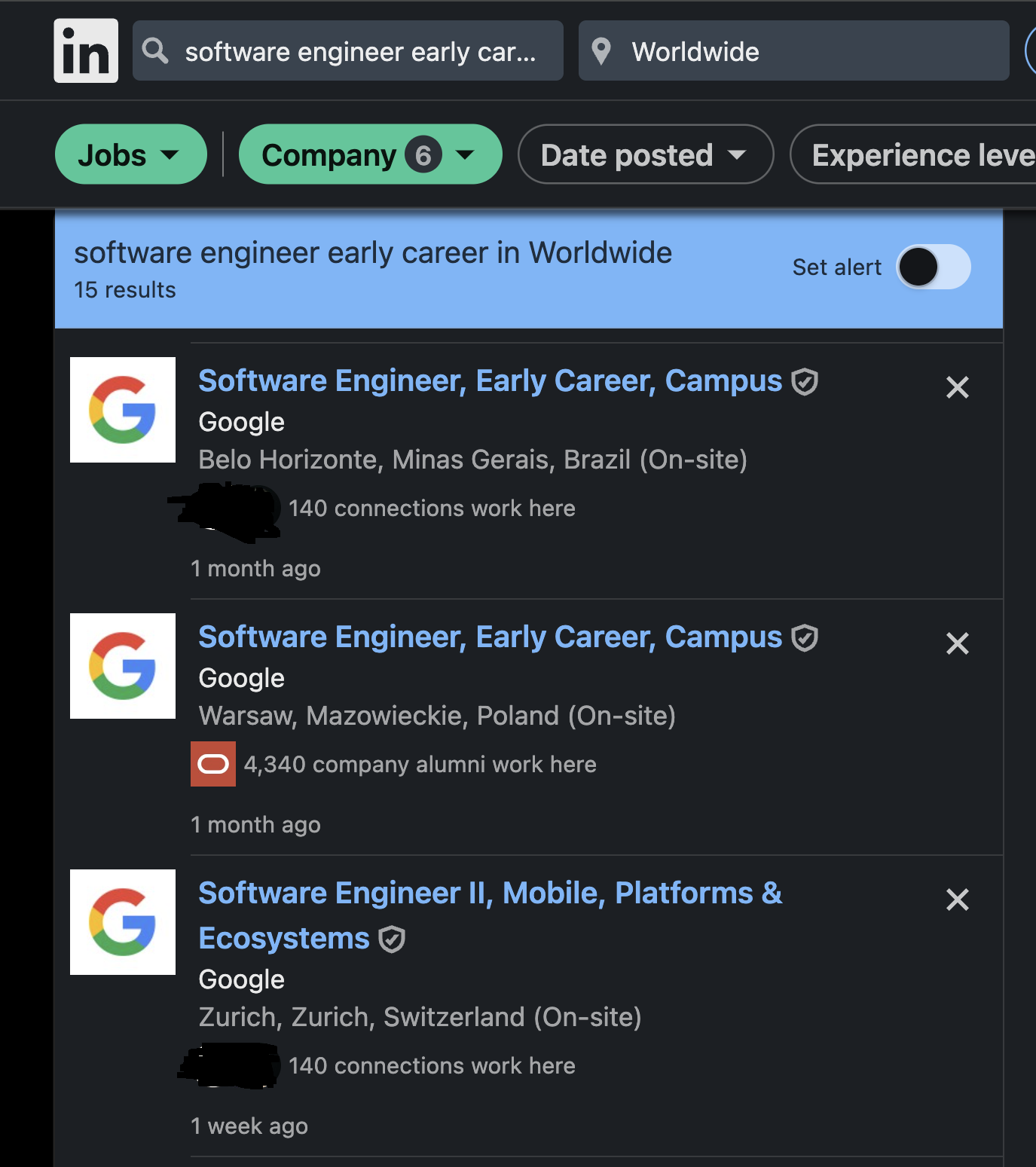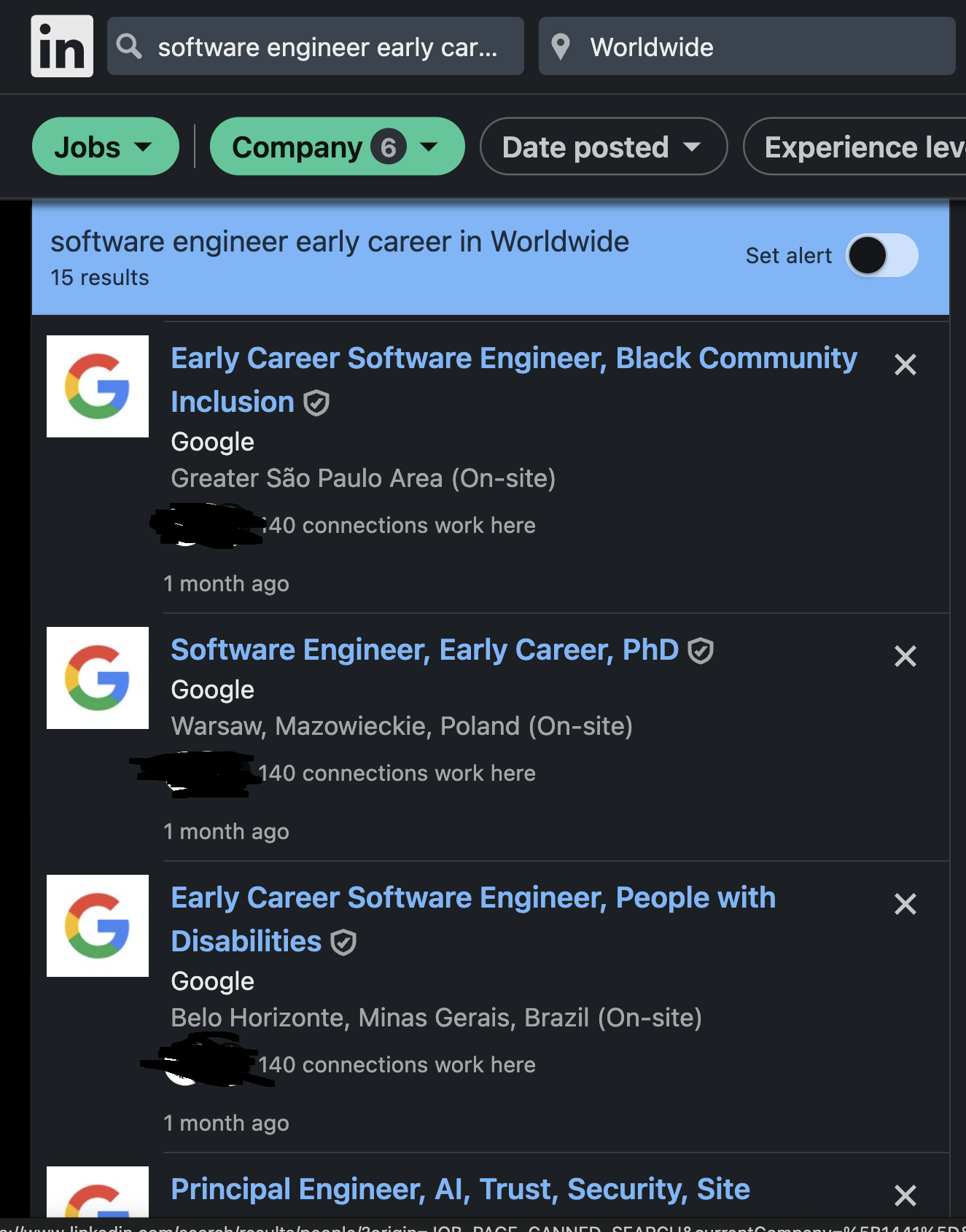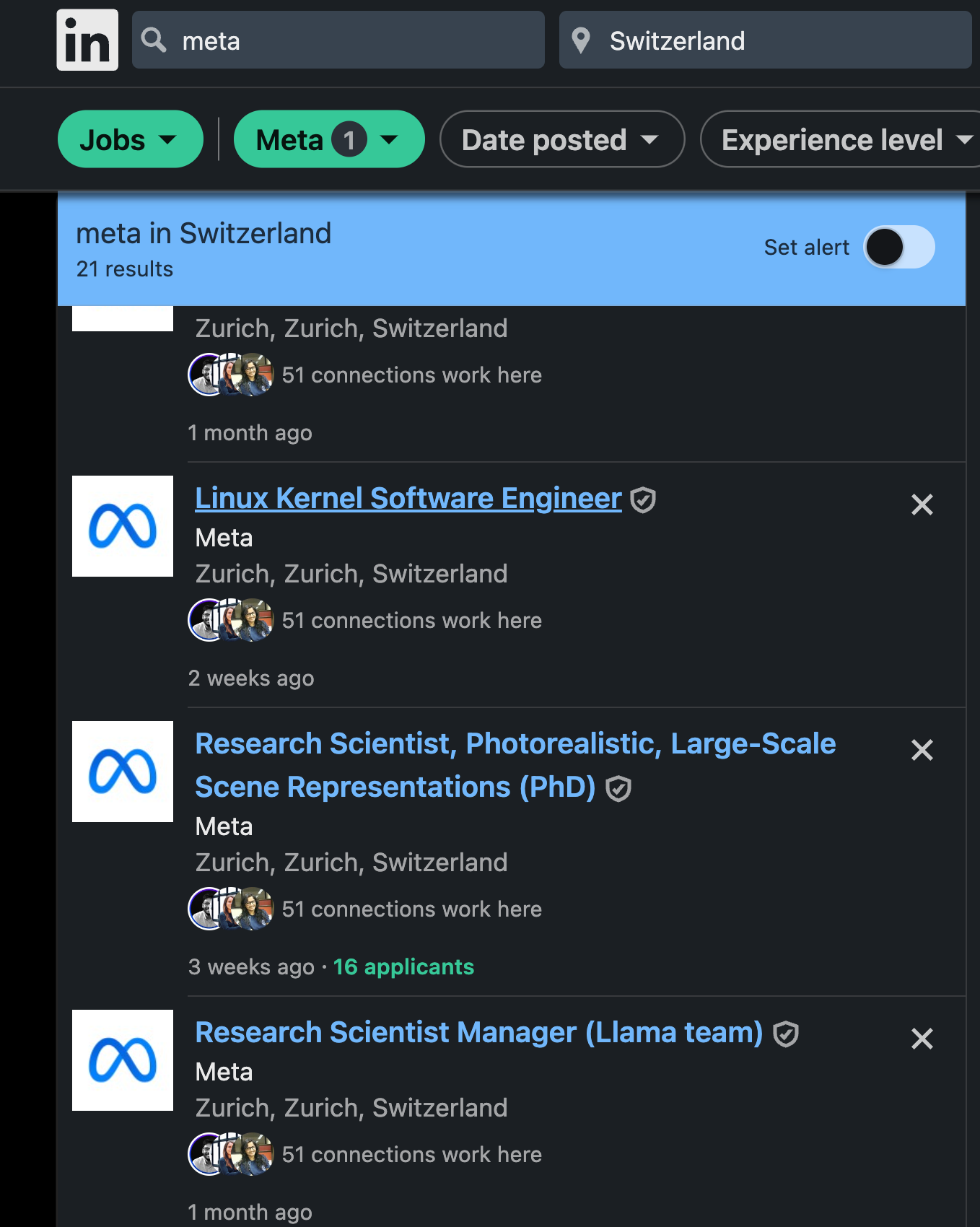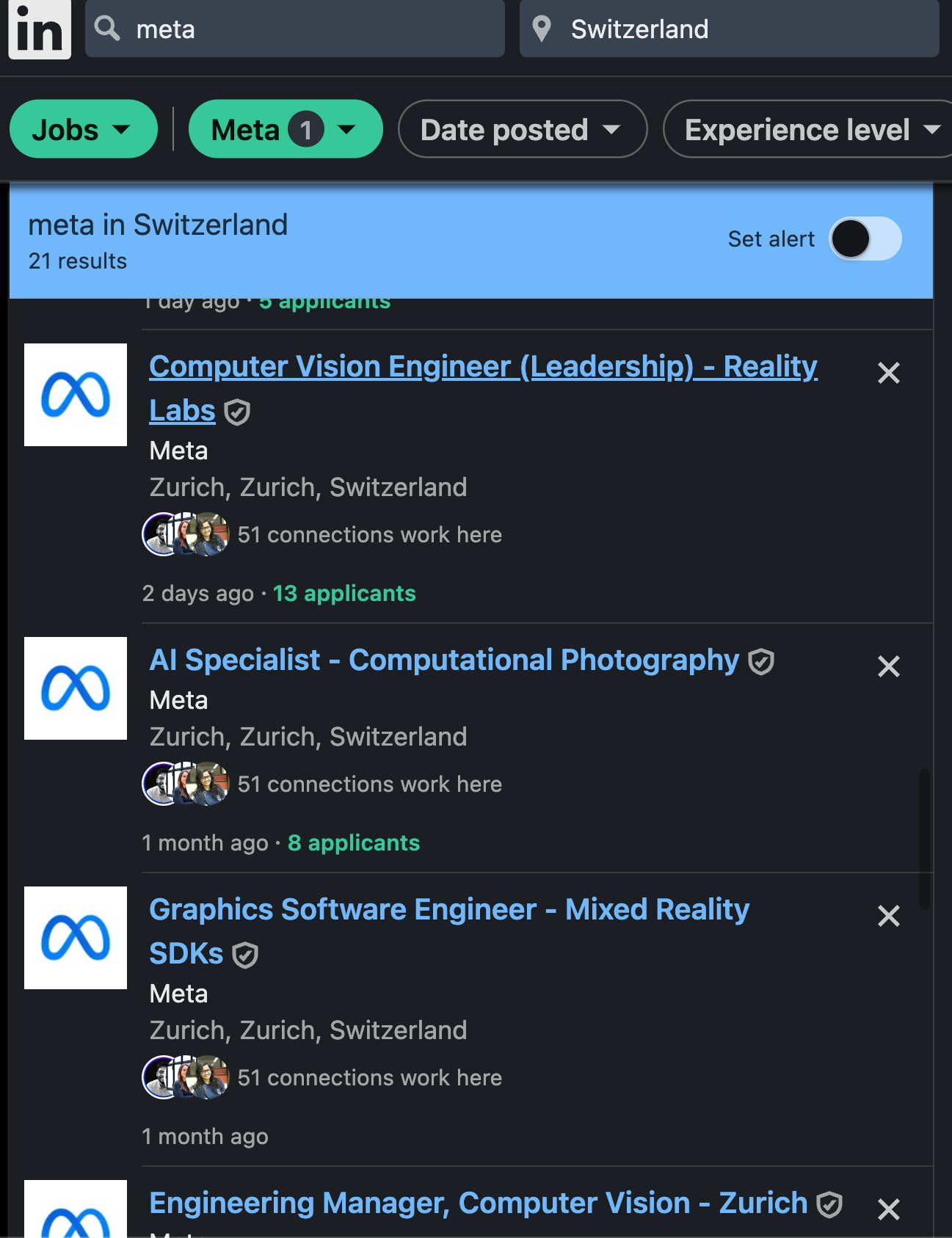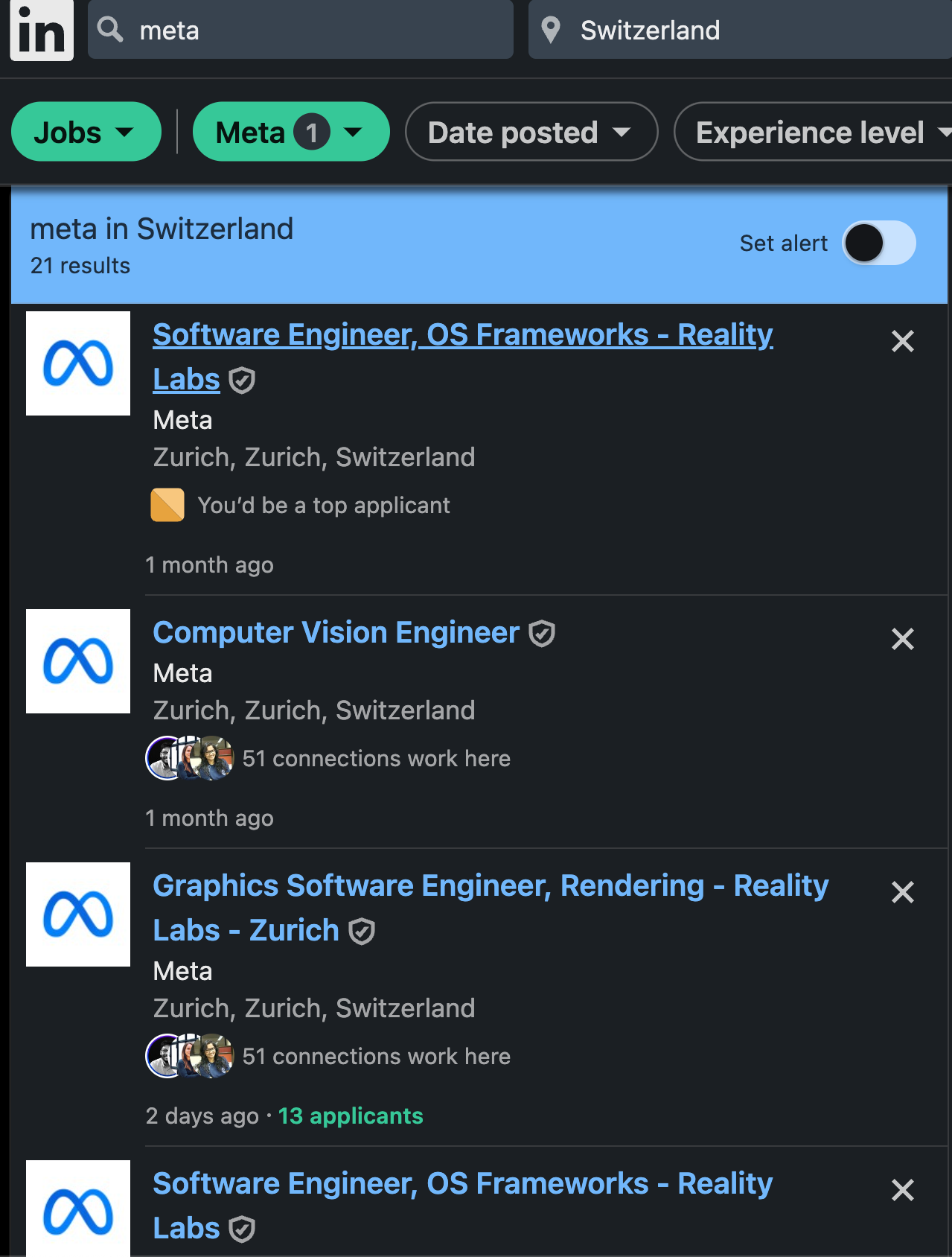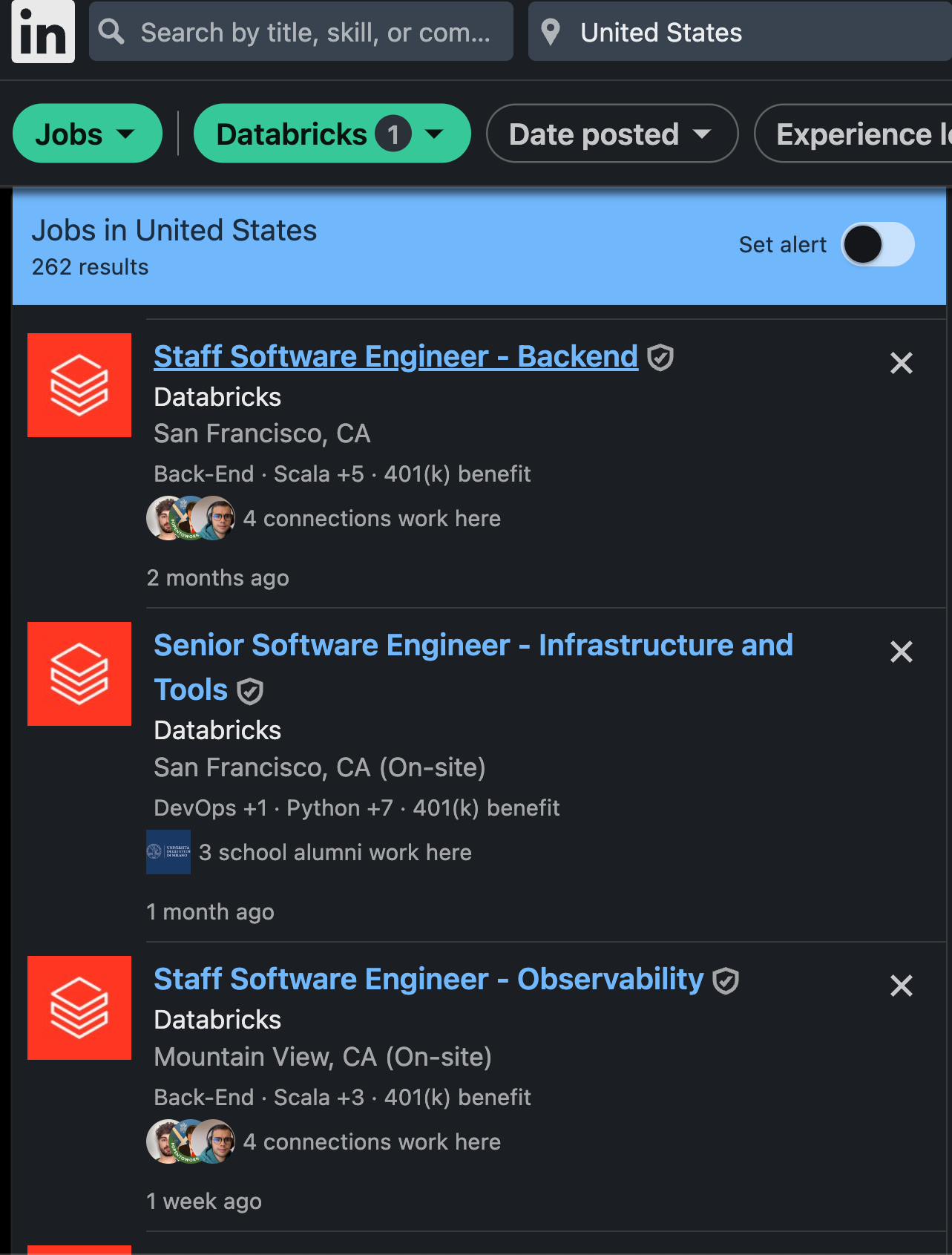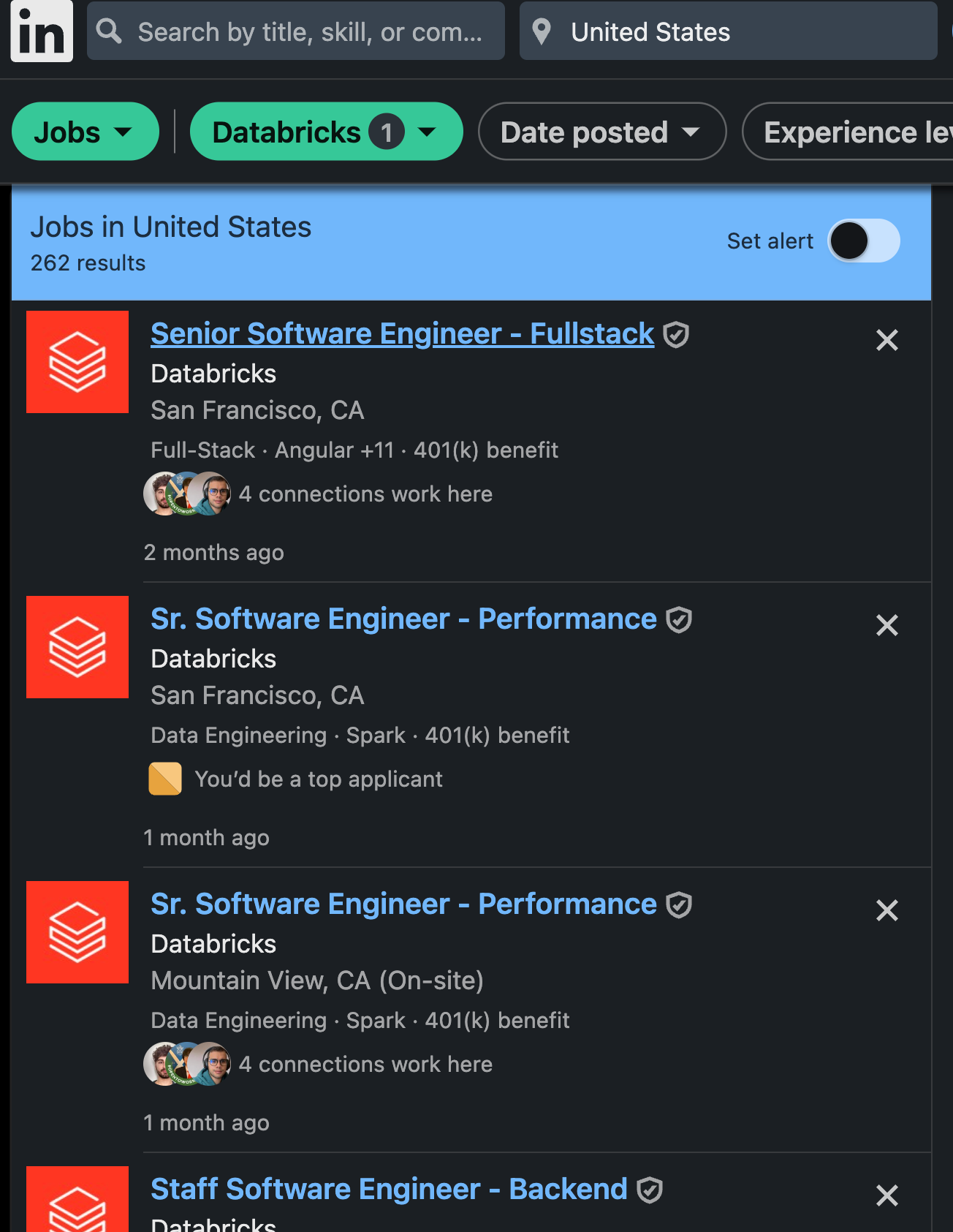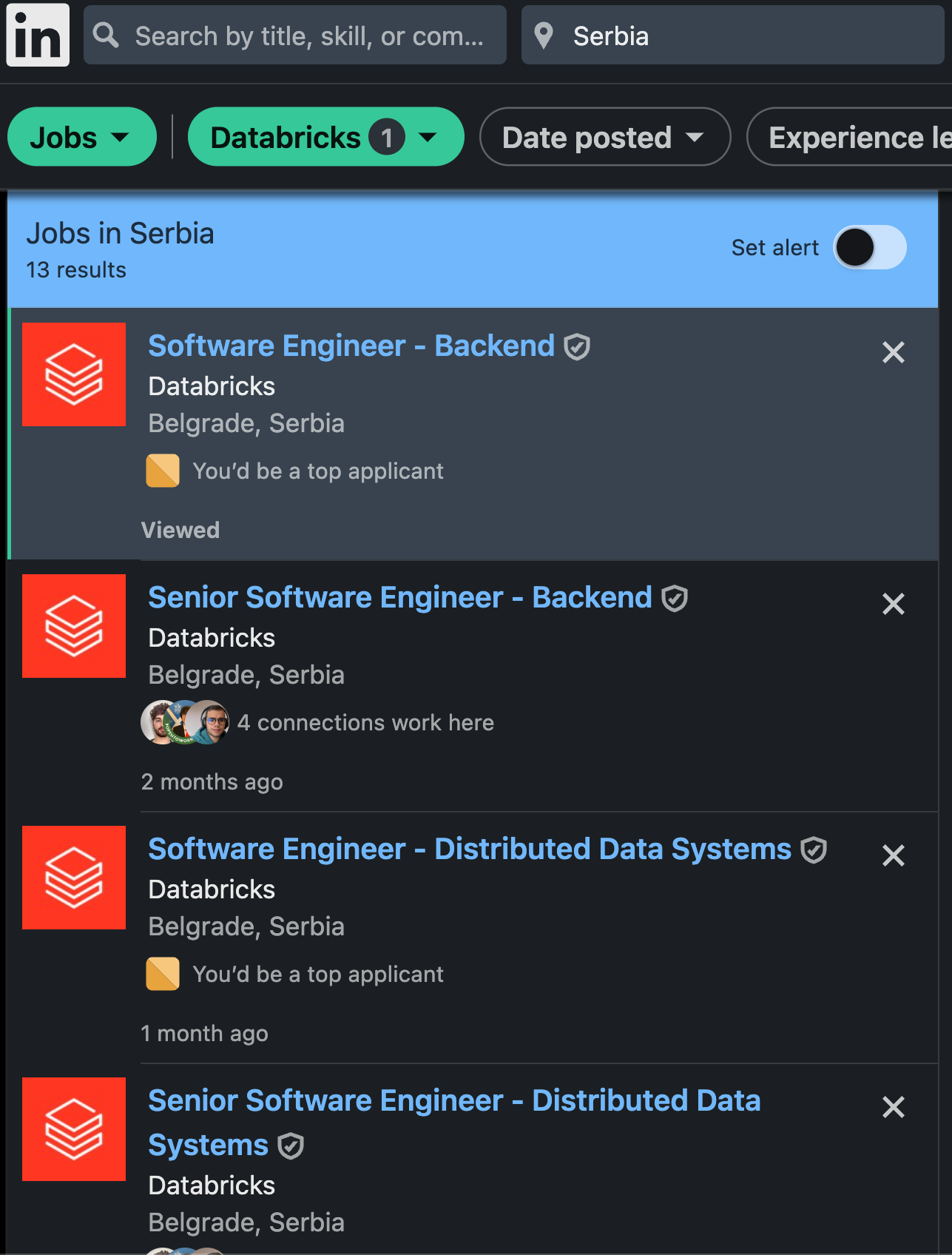Hi everyone,
Today we expand on last week’s article about how the software development world is slowly but steadily shifting from being US-centric to being more remote and offshored.
I believe this is a significant shift and understanding its dynamics better will help everyone of us to make better decisions on our career and life.
Some data
A picture is worth a thousand words, as well as actual data, so here’s some of that:
Where is Google currently hiring new grads?
Poland 🇵🇱 and Brazil 🇧🇷
Warsaw, Cracow, Belo Horizonte and São Paulo seem to be the only places where Google is currently hiring early career Software Engineers.
There’s also a lev II role in Zurich, which technically is the same as the Early Career role (they should both map internally to an L3 role (levels.fyi to learn more).
I wonder if the different way they named/branded it means that in one case they’re ok with candidates straight out of school and if for the other they prefer candidates with some full-time experience.
But in any case, the amount of roles shows a clear focus on certain locations.
You can verify this data yourself by going to their website, or checking their openings here on LinkedIn.
Again, layoffs and offshoring
Also, as you might have heard, there were also some layoffs in some internal tooling teams at Google like in its Python team.
The goal seems to be around de-prioritising these teams and offshoring them into LCOL places.
An interesting point brought up from Michel Tu on a LinkedIn’s post (btw, great guy to follow for nuggets on technical career growth in big tech) was mentioned in this part of his post:
«Google will still have a python team but because it is less mission critical, it won’t invest as much resources as it used to – so yes the team may move to cheaper markets, but this reflects the importance of the work for Google»
The last part is interesting, and I tend to agree.
What are the last jobs to be offshored?
The more technically “core” and R&D ones.
Let’s look at Meta job openings in a HCOL like Zurich, Switzerland:
Seems like quite a bit of hiring is going on there. At all levels: juniors to seniors.
They’re all in the Reality Labs team: a team focused on building the Metaverse (VR/AR/CV roles).
This team has a big presence in Zurich, due to the presence of ETH and its world-class research department on these topics.
For Meta, it makes sense to have a high-cost presence in Zurich, because it’s a great place to hire those specialised, top-notch devs.
They also keep hiring in London, where they can find many top quality (similar to US) web app devs for a decent price (less than the US).
To be fair, Meta has never been a company which bet a lot on offshoring, and they keep hiring in the US too: they have no problems paying top salaries to attract top talent. They were actually the first company to raise dev’s salaries worldwide in the first place, when they were starting up and had a lot of capital and wanted to poach Google’s engineers (learn more in this video from
).Let’s checkout Databricks.
In the US, they are mostly hiring Senior/Staff engineers, with focus on large-scale distributed systems.
Seattle and Silicon Valley remain the best places in the world to have access to top, senior talent in these areas.
Since they are very well funded and develop a very complex product, for them it’s worth it to spend a lot to get this expensive talent, given the high impact potential of it in its business.
When it comes to more junior, but still talented devs, they’re expanding in Serbia:
Where you can see they also hire Interns and Junior/Mid-level Engineers.
Why hire a new grad in the US, when you can hire someone with a very similar skillset in a place like Belgrade?
What can you do to protect yourself and maximise your position?
A key differentiator will lie on your current location and citizenship/residency.
These tips are mostly for Western/US devs but can be insightful for everyone:
1. Adjust your expectations
While a Golden Era is certainly over, a Silver Era will remain. A SWE job won't be the same easy path to wealth that it has been over the last decade, but it will stay a solid white collar job. You'll have more competitions though, and probably lower pay.
2. Become a specialist
The last jobs to get offshored are those closer to R&D. Decide in which Western location you plan to have a career, and specialise accordingly: if you're based in SF, that might be AI/ML and Distributed Systems, if you're in Seattle, that might be Cloud Computing, if you're in Zurich, that might be Computer Vision and VR.
3. Become a US-remote dev
You'll be OK with lower salaries, but you will cut down on expenses working from low cost-of-living (LCOL) areas, ideally outside of the US for at least some months every year. The need for a US residence permit for US-remote jobs will protect you from the competition of developers in Asia and Europe. Take residency in a low tax US state.
4. Relocate to up-and-coming Tech Hubs
Poland, India, Mexico, Romania, Serbia. These are just some of the places where developer's jobs are getting offshored to. They are LCOL, and local dev salaries are much higher than the national average, meaning you'll maintain your status as an upper-class professional.
Many of these places have high standard of living. Poland in my opinion is the nr.1 choice. In Europe, you'll have less competition than in India, which can be good if you don't want a high pressure environment.
5. Consider career pivots
If you’re a CS student, consider changing your degree to something like Medicine, as it's harder to offshore healthcare. A blue collar career might also be worth it: you won't be required to take on student debt, and if you're in a HCOL place, chances are that you will be able to secure a high paying job relatively soon, with the option of turning it into a business after a few years of experience and build a solid foundation for your wealth creation journey.
6. Explore online businesses
E-commerce, SaaS, Copywriting, Content Creation etc. It is a relatively risky route because it means being an entrepreneur - or a freelancer in the least risky/rewardy option. Since these businesses are online and remote friendly, this path will probably lead you to relocate to a low-cost, low-tax country eventually.
6FEE: 6 Figures Euro Engineer Coaching Program
As you guys probably know, I’ve recently launched a coaching program called 6FEE: 6 Figures Euro Engineer.
It could be interesting for you if you value:
Tailored Guidance: Personalised strategies to navigate the tech markets of Europe and Switzerland, aligning with your career aspirations.
Actionable Plans: From securing prestigious roles to enhancing your lifestyle and finances, we define clear, achievable goals.
Exclusive Network Access: Connect with leading engineers and recruiters from my personal network.
Community and Support: Regular 1:1s with me and group interactions with the other members of the program.
Limited Enrolment: Only 5 spots, with 2 remaining, ensuring personalised attention and significant growth.
It's through application. You can find more info in this newsletter article.




